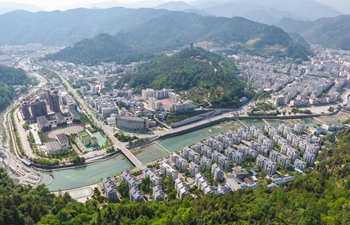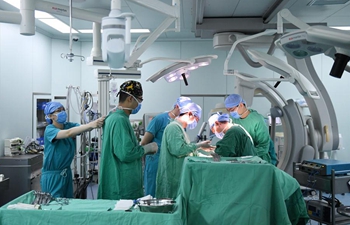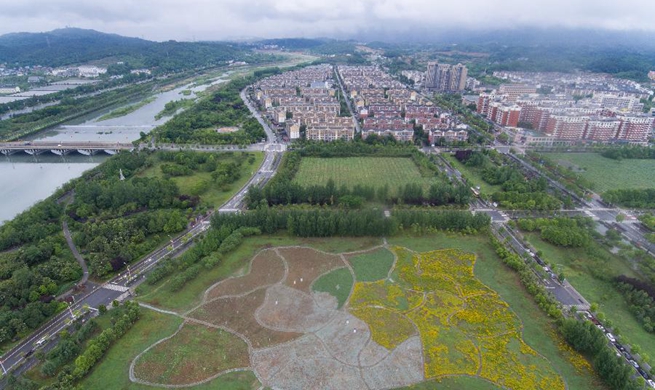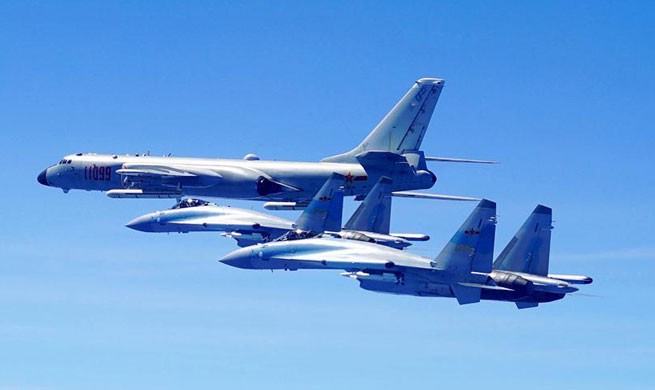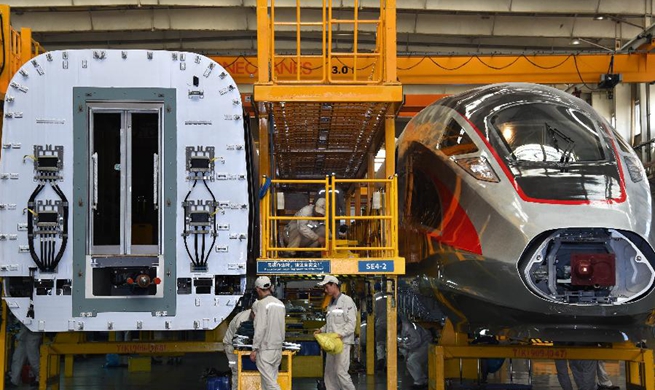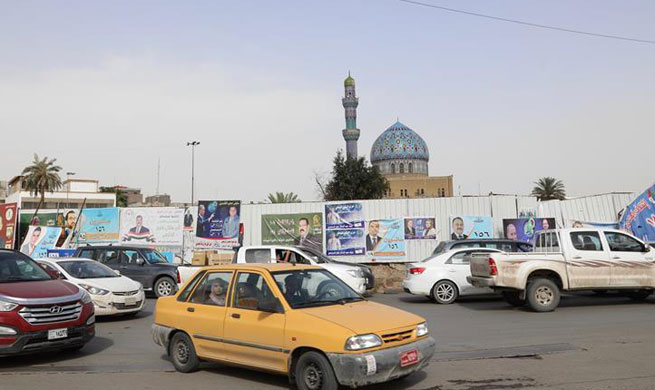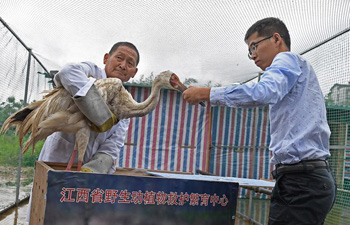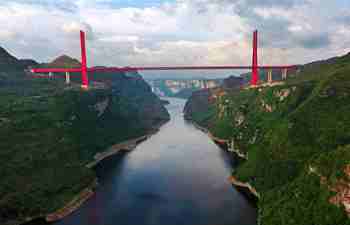MOSCOW, May 12 (Xinhua) -- "We were so warmly escorted ... when we were leaving, they expressed their gratitude. This amazed me, and it is true. We sat down with the guys and said: nowhere else we had a farewell with such deep respect," said Sergei Salov, head of a detachment of Russian rescuers working at the site of the devastating 2008 earthquake in southwestern China.
A 8.0-magnitude earthquake struck the Wenchuan county in China's Sichuan province on May 12, 2008, leaving more than 69,000 dead, 374,000 injured, 18,000 missing and millions homeless.
Russia was among the first foreign countries to dispatch relief goods, rescue operations and medical aid to Wenchuan. Salov, the then director of the department of operational management of the Russian Emergencies Ministry, arrived at the spot with his relief team on the fifth day after the earthquake.
"The destruction was terrible. Particularly frightening was the fact that the buildings were not just destroyed -- they seemed to have folded, which meant that it was very hard for people to survive. And it was very difficult to pull the survivors from under the ruins," Salov said.
The rescuers went straight to work upon arrival and asked those who survived for any details about potential survivors.
"Our rescuers with a dog specialists and a specially trained dog went to inspect the ruins. And in one place the dog sat down. It meant that under the ruins there was someone alive. There were concrete ceilings, and to penetrate below, it was necessary to chisel the concrete slab," Salov said when telling the story of saving a survivor stuck in the ruins for more than five days.
After a cautious operation, the rescuers managed to spot a woman buried deep down in the ruins and free her from the rubble where she lay for 127 hours, he said.
According to Salov, the Russian detachment was 100-strong, of which 40 people were doctors and medical staff, another 30 were search and rescue personnel, and the rest were all kinds of support servicemen and technical staff.
"The work of all was really difficult, but especially that of psychologists. They worked through translators, and often without translators ... After all, communication sometimes goes on the level of feelings, looks, touches and works at the subconscious level. People felt that they were not left alone with their terrible misfortune. And so they felt better," Salov said.
Complete support and cooperation from the Chinese side was an important reason for the successful work of the Russian rescue operations, Salov said.
"The Chinese did not interfere with our work, but if we asked for help, we received it as quickly and fully as possible, and sometimes even more than expected. It was a great job," he said.
Salov said it is a wise decision by the Chinese government to establish a special ministry for emergency situations.
"There must be people with special training and ready to come to the rescue in any situation. This is huge work, including work to coordinate the actions of various services and departments," he said.
The Russian rescuers were deeply impressed by the farewell they received by the locals.
"There was a feeling that the city was empty," Salov said. "But when we were about to leave, suddenly a lot of people appeared out of nowhere. We were so warmly escorted ... It's worth a lot."





